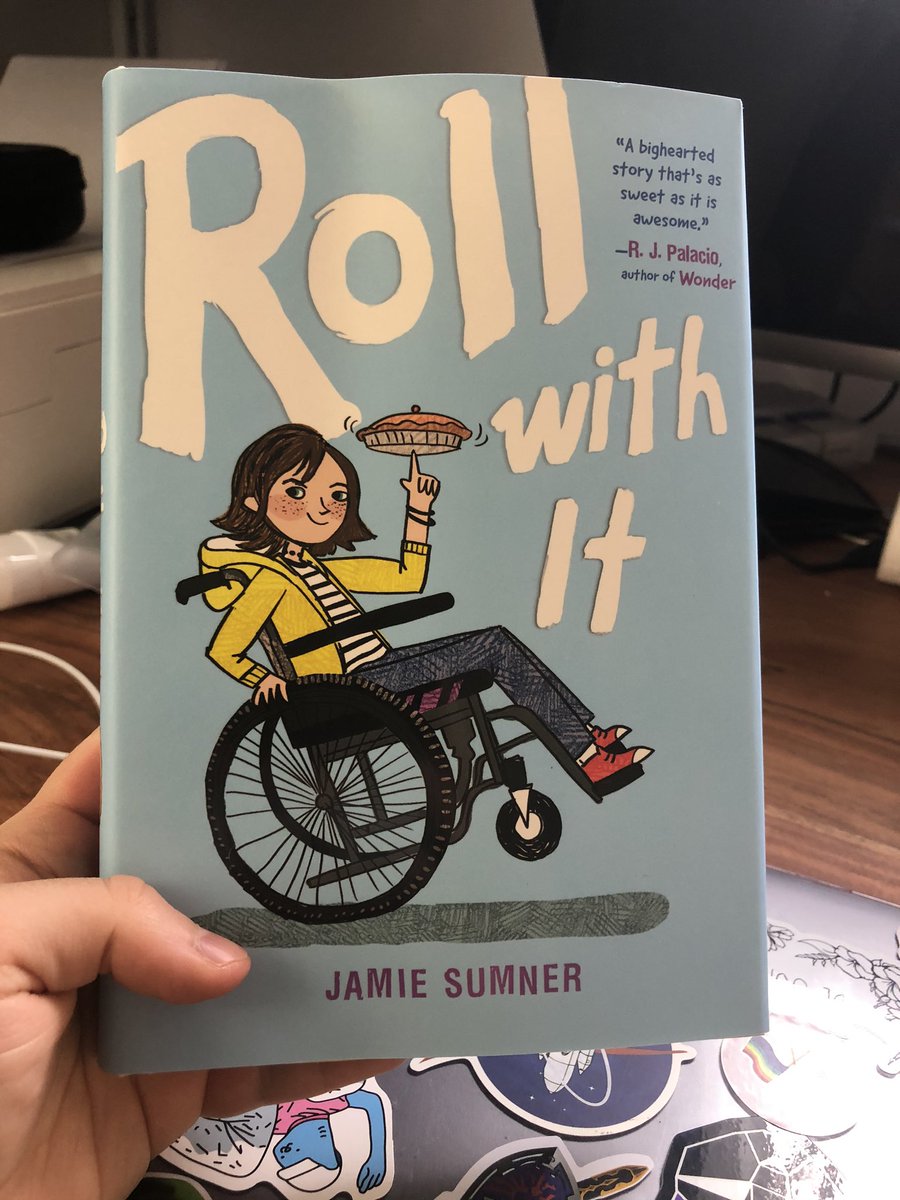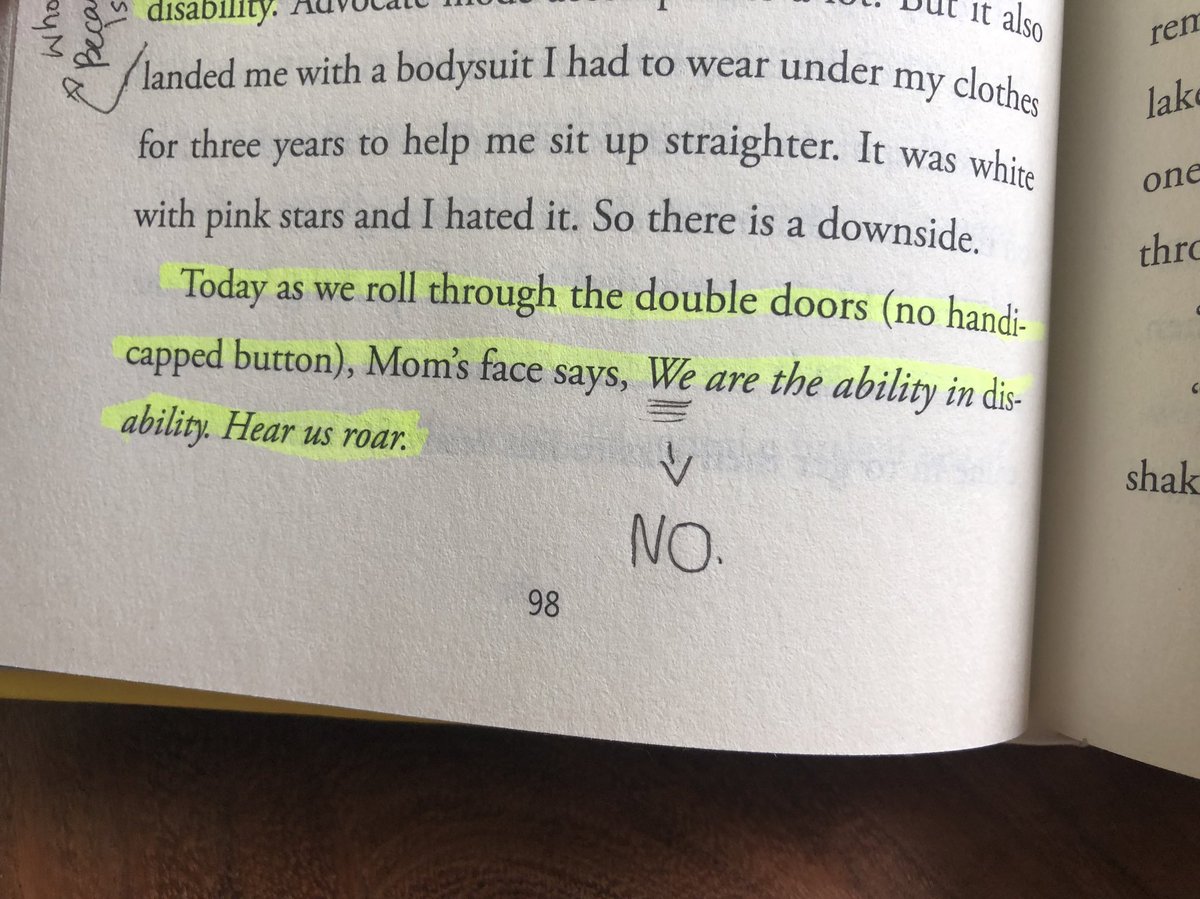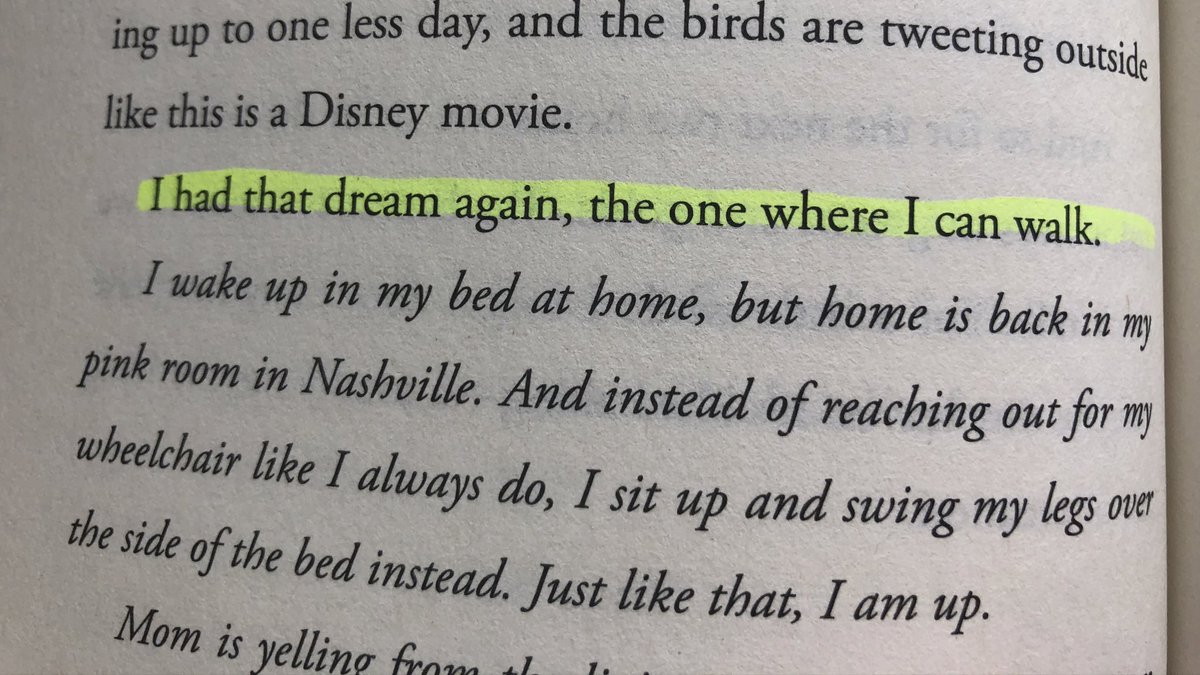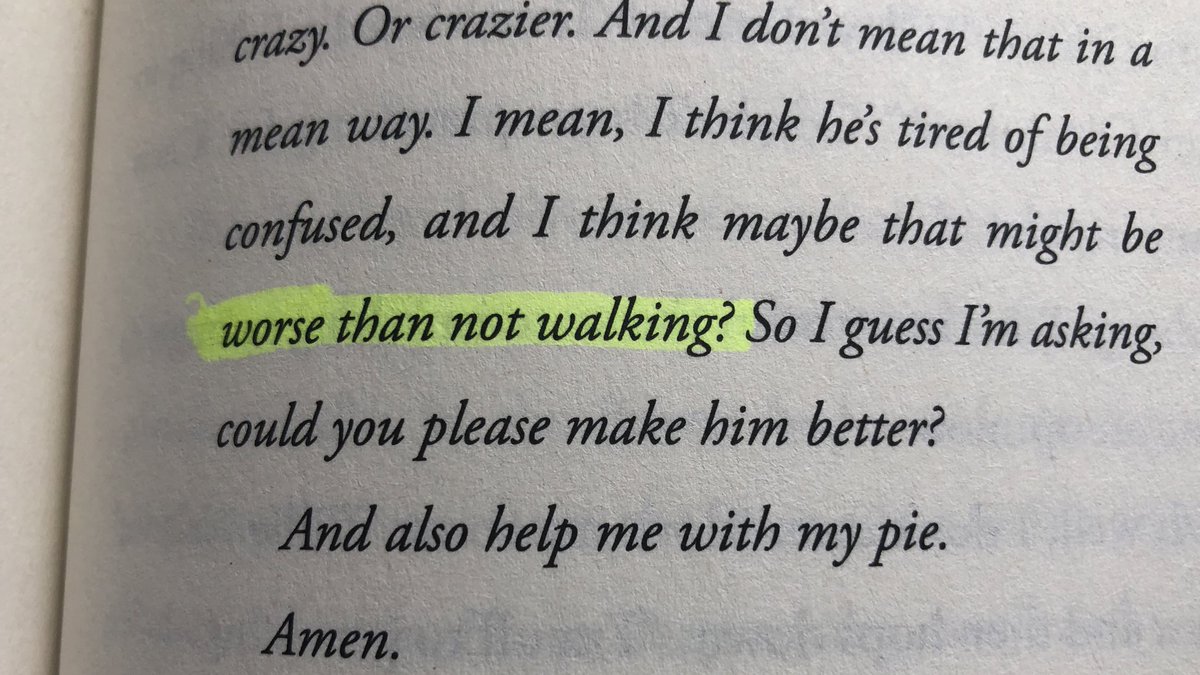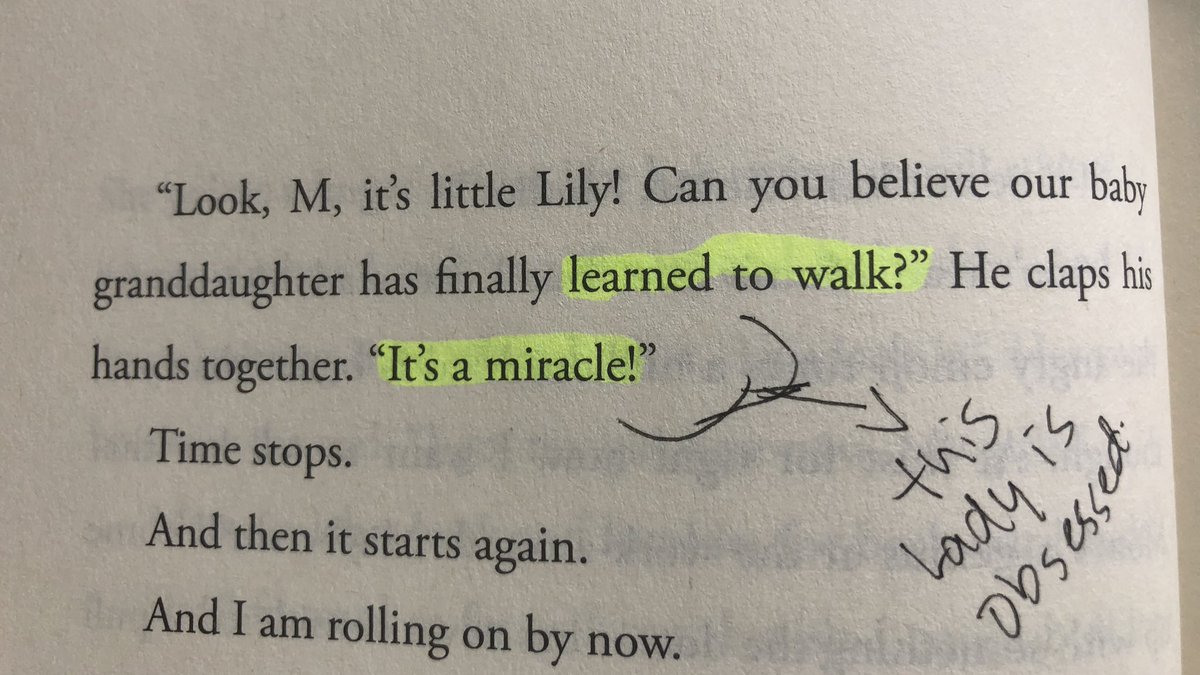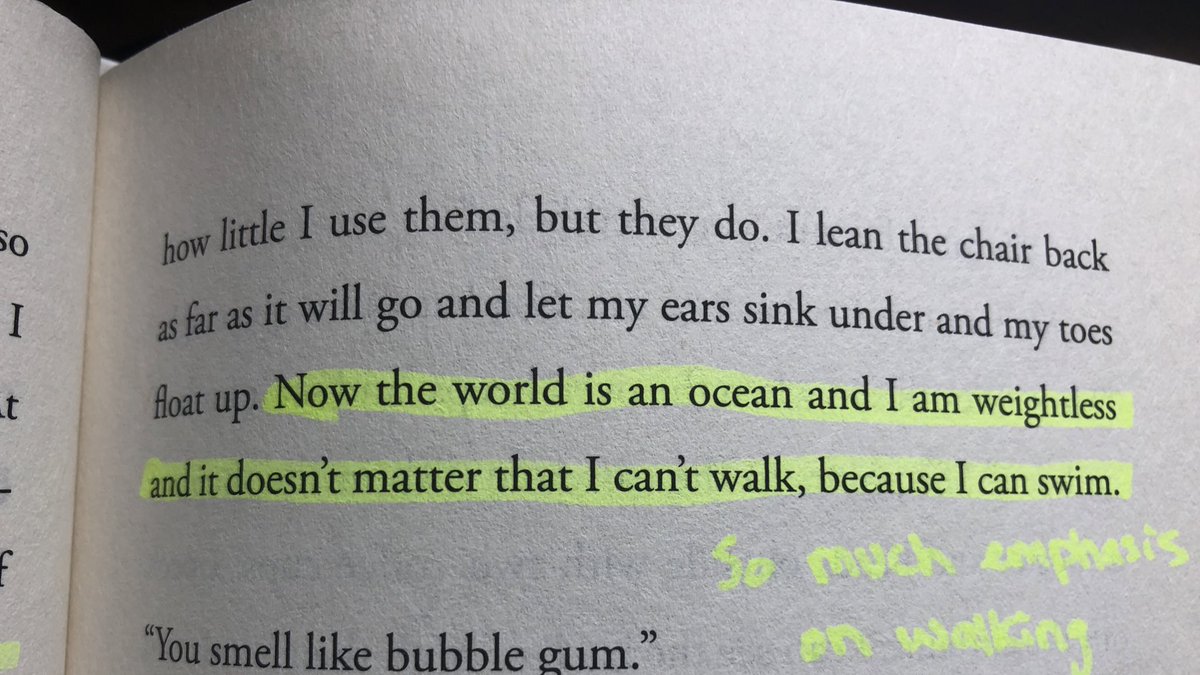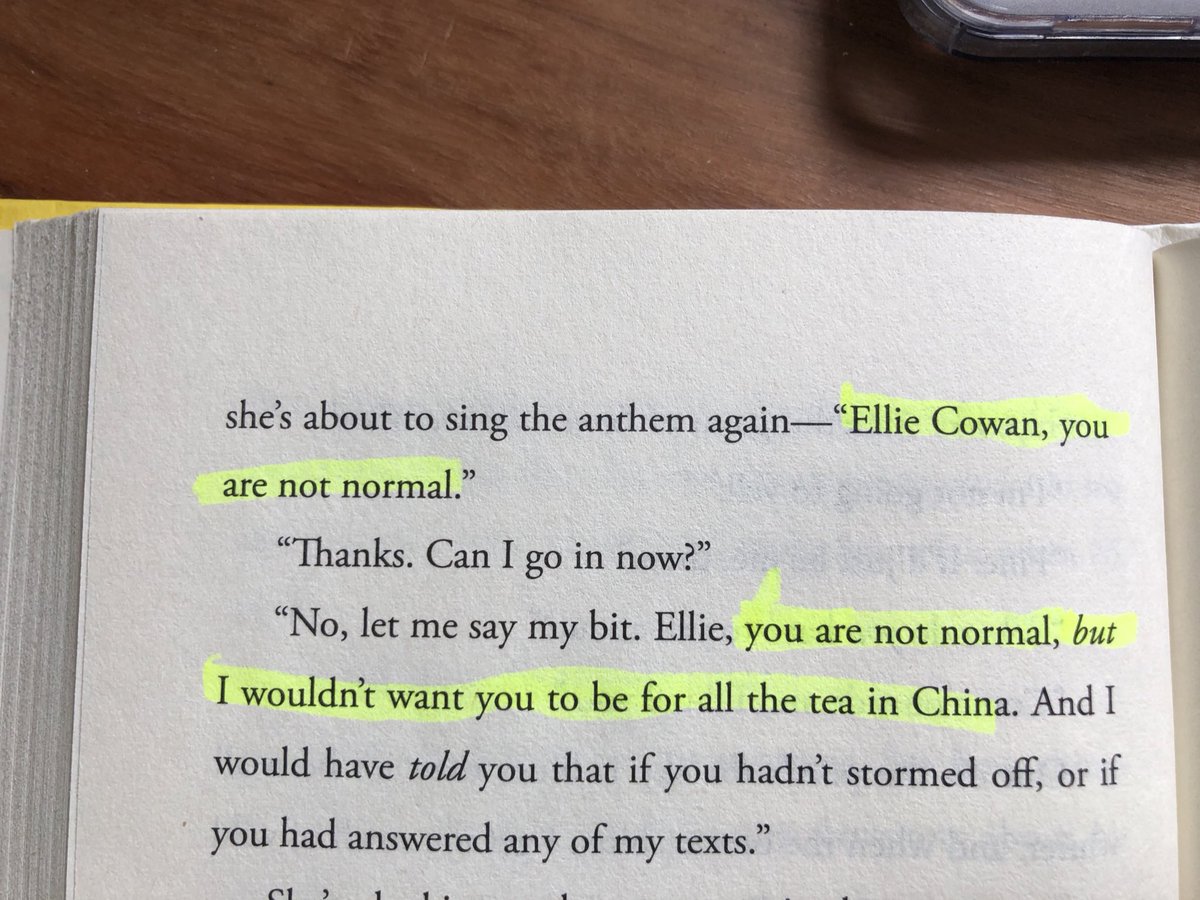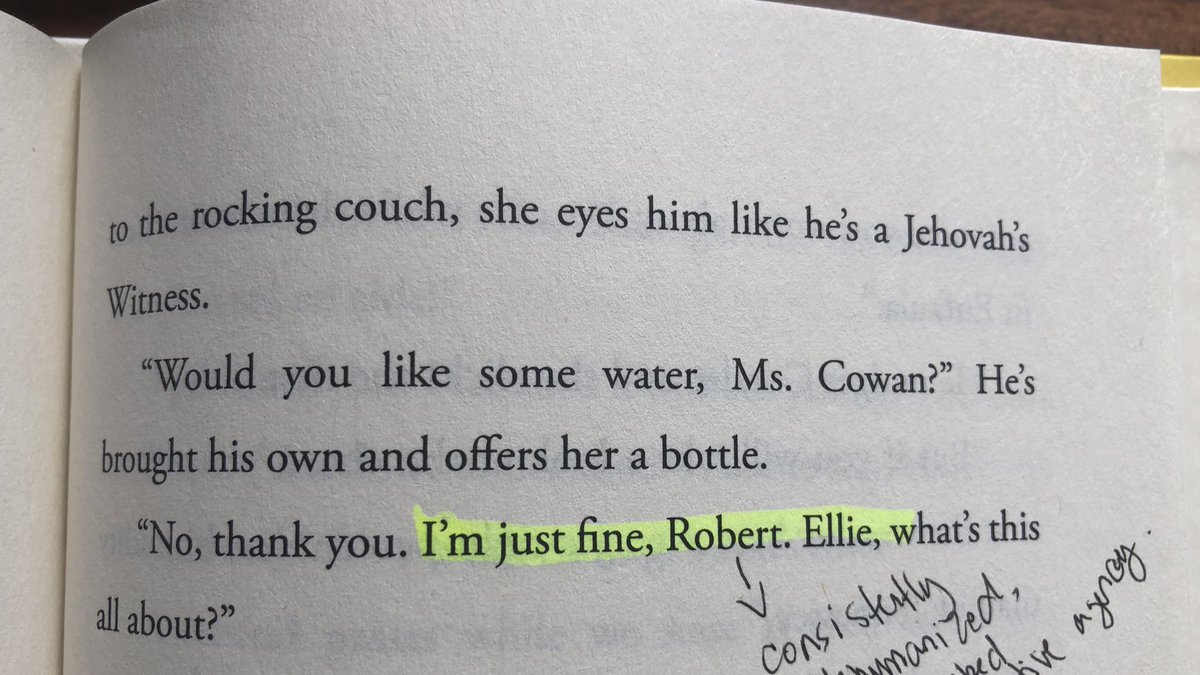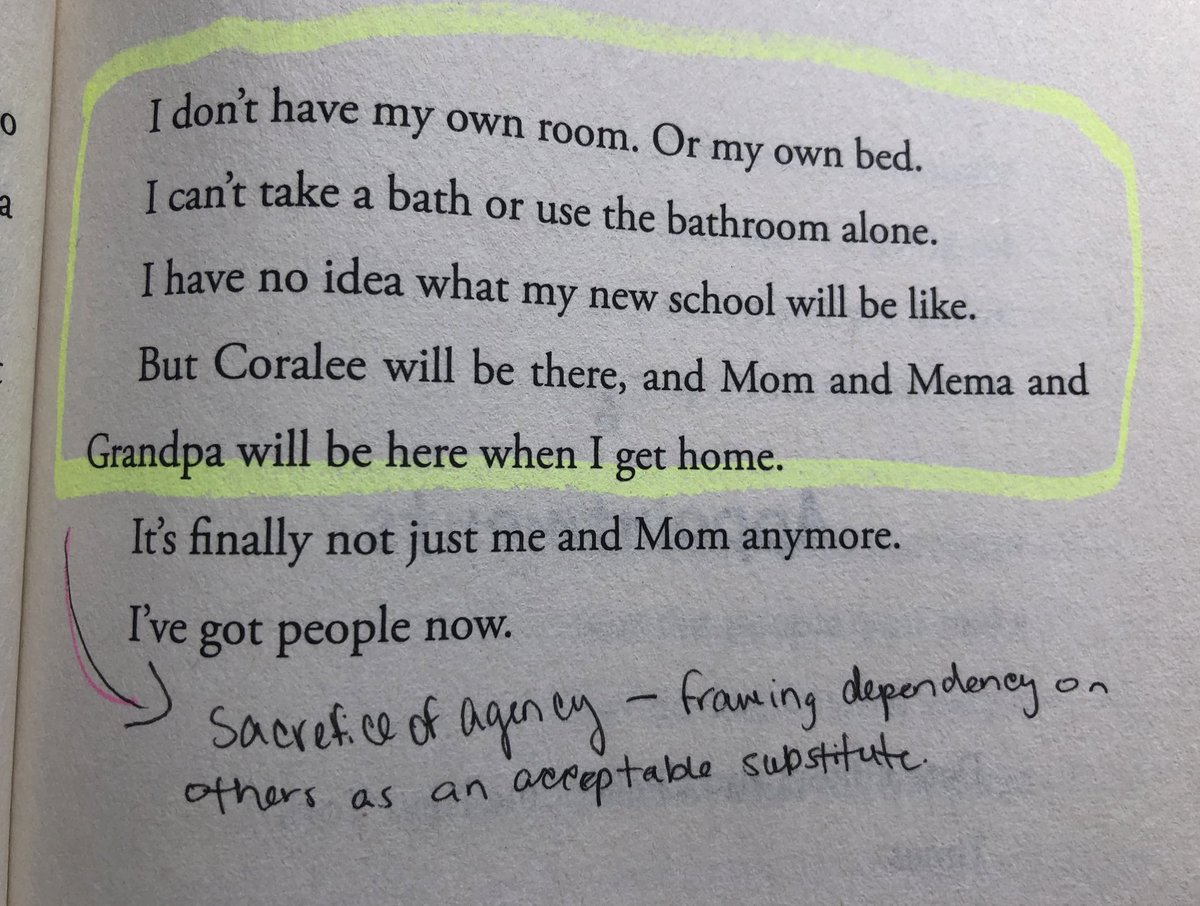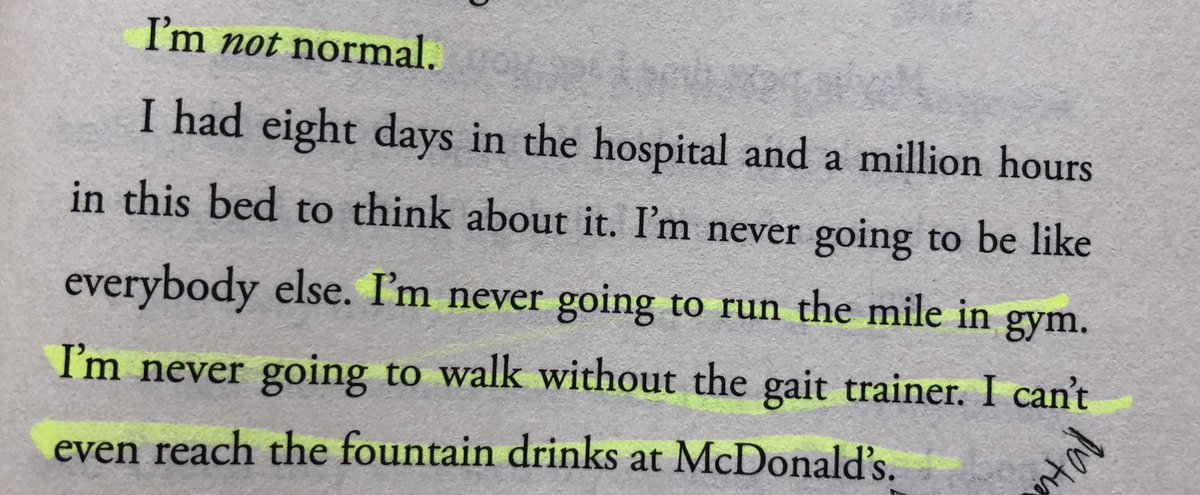This is the book
It was p ableist (especially toward people with developmental disabilities, ESPECIALLY autism)
Read it if you like but be warned that it’s infuriating.
There was also:
The “wheelchair BOUND” narrative
“Trapped in my body”
“It’s totally okay to touch my chair” https://twitter.com/aaronlinguini/status/1261472731310067713">https://twitter.com/aaronling...
It was p ableist (especially toward people with developmental disabilities, ESPECIALLY autism)
Read it if you like but be warned that it’s infuriating.
There was also:
The “wheelchair BOUND” narrative
“Trapped in my body”
“It’s totally okay to touch my chair” https://twitter.com/aaronlinguini/status/1261472731310067713">https://twitter.com/aaronling...
They make it seem like it’s okay to have ZERO agency over your body if the people touching it are people who love you
The mother in the story acts like her daughter is an accessory to her, and as if she is also somehow disabled by having a disabled child
The mother in the story acts like her daughter is an accessory to her, and as if she is also somehow disabled by having a disabled child
She is OBSESSED with walking, as if it’s the only thing any disabled person ever wants to do
(This isn’t even a fraction of it)
(This isn’t even a fraction of it)
When the kid gets justifiable upset at her friend for GRABBING HER CHAIR and saying “you’ll never be normal”, we get THIS
Where “oh but it’s a beautiful thing” and where the disabled kid is the one apologizing because she “didn’t hear out her friend”
Where “oh but it’s a beautiful thing” and where the disabled kid is the one apologizing because she “didn’t hear out her friend”
And do not get me started in the autistic character.
They treat him like an object. They insult him to his face but act like it’s okay because “he doesn’t understand”
They treat him like an object. They insult him to his face but act like it’s okay because “he doesn’t understand”
Adult characters blatantly IGNORE HIM and speak to other characters instead of him (this is a part where HE is there to give her a presentation, and this adult asks another kid what he’s there for instead of him directly)
AND THEN, oh boy this one really made me want to scream—
We have the plot of the book—this girl with CP and her mother uproot their lives to go live with their grandparents
In a trailer
That isn’t accessible.
The kid is stripped of nearly all agency but it’s fine, because love
We have the plot of the book—this girl with CP and her mother uproot their lives to go live with their grandparents
In a trailer
That isn’t accessible.
The kid is stripped of nearly all agency but it’s fine, because love
They make it sound like having a mobility attendant is THE WORST THING IN THE WORLD, so the kid basically suffers all day because she doesn’t get any help
But simultaneously, it’s fine when she’s stripped of her agency in her own home, because it’s family.
But simultaneously, it’s fine when she’s stripped of her agency in her own home, because it’s family.
This book was very, very clearly written by a “disabled mommy” (a mother with a disabled kid” and it was nauseating to read some these words as if they’d ever come from a disabled person themselves.
They also CONSTANTLY use ableist language—the girl calling herself “crippled” and an “invalid” in demeaning, self deprecating ways
And they NEVER address it. Never address internalized ableism.
This was harmful and difficult for me to read, as an ACTUAL disabled person.
And they NEVER address it. Never address internalized ableism.
This was harmful and difficult for me to read, as an ACTUAL disabled person.
So my question now is:
Who is this for?
We know who it’s from—it’s a mother of a child with CP.
But when you write damaging things without any thought for how this book might make DISABLED CHILDREN feel—who have you written it for? Who was your audience?
Who is this for?
We know who it’s from—it’s a mother of a child with CP.
But when you write damaging things without any thought for how this book might make DISABLED CHILDREN feel—who have you written it for? Who was your audience?
I don’t care if “I have a disabled kid and this is how they talk about themselves and their disability all the time”
Let THEM write a book.
You have absolutely no place taking their internalized ableism that you clearly never addressed, and using it to reinforce ablism.
Let THEM write a book.
You have absolutely no place taking their internalized ableism that you clearly never addressed, and using it to reinforce ablism.
Also—that doesn’t explain why you flat out insult any kid who “drools and can’t talk” or autistic kids who are “”””weird and needs to work on their filter””””
You make it sound like it’s okay to talk to everyone around an autistic person instead of then directly.
You make it sound like it’s okay to talk to everyone around an autistic person instead of then directly.
You make it sound like it’s okay and even LOVING to touch someone’s wheelchair without permission.
Then this girl notices that the path to her neighbors house is gravel and she won’t be able to roll over it herself, she turns around to go back home.
Instead of letting her leave, or ASKING HER what SHE WANTS, the neighbor GRABS HER and WHEELS HER OVER TO HER HOUSE
Instead of letting her leave, or ASKING HER what SHE WANTS, the neighbor GRABS HER and WHEELS HER OVER TO HER HOUSE
And it’s framed as an act of KINDNESS.
This goes on over and over, like “it’s so nice that when we want to hang out she wheels me to her house—where I then have zero agency over when I get to go home. And if we fight then I’m fucked! Haha that’s such a normal friendship dynamic”
This goes on over and over, like “it’s so nice that when we want to hang out she wheels me to her house—where I then have zero agency over when I get to go home. And if we fight then I’m fucked! Haha that’s such a normal friendship dynamic”
When she’s upset, her mom won’t leave her alone or stop *literally touching her body*, as she’s “fussing over her” because she won’t tell her mother how her first day at school went
When she asks her mom to stop touching her, the mom says “so then start talking.”
When she asks her mom to stop touching her, the mom says “so then start talking.”
This is. Absolutely repulsive.
And you know what? I’d be able to handle it. I handle ableism every day.
It’s the fact that this book is PRAISED, and largely acknowledged as one of the BEST pieces of children’s literature about disability—when it is ACTUALLY horribly ableist.
And you know what? I’d be able to handle it. I handle ableism every day.
It’s the fact that this book is PRAISED, and largely acknowledged as one of the BEST pieces of children’s literature about disability—when it is ACTUALLY horribly ableist.
That’s what bothers me.
When ableism is invisible—when it’s even seen as helpful or heroic—that’s when it hurts me the most.
When disabled people are framed as bitter or ungrateful or not understanding enough, merely because we SEE ableism and FEEL ableism where others don’t.
When ableism is invisible—when it’s even seen as helpful or heroic—that’s when it hurts me the most.
When disabled people are framed as bitter or ungrateful or not understanding enough, merely because we SEE ableism and FEEL ableism where others don’t.
Stop positioning us as abnormalities merely because you refuse to see these spaces as anything other than “normal” or “neutral”.
When something is inaccessible, it is not neutral. It’s charged.
Our absence from design is charged. It reflects systemically embedded ableism.
When something is inaccessible, it is not neutral. It’s charged.
Our absence from design is charged. It reflects systemically embedded ableism.
If you build a house with no doors, who is positioned as the problem?
Is it you who is dysfunctional, or the building?
Look—birds fly in from the window. Why don’t you use the windows?
I mean it works for them, right? So surely this design cannot be the problem, if it WORKS...
Is it you who is dysfunctional, or the building?
Look—birds fly in from the window. Why don’t you use the windows?
I mean it works for them, right? So surely this design cannot be the problem, if it WORKS...
Anyway, I’m trying to learn how to advocate and talk about this stuff without coming down so hard and showing my feelings about it, but it’s hard when it hits so close to home and the gaslighting is near constant.
When saying things nicely basically = saying nothing (see: years of continued ableism despite explaining it every single way), it becomes clear that the only time our voice is heard is when we say it loudly enough that it cannot be ignored.
I know it’s hard not to be like “geez cool it”—but perhaps tone policing isn’t the solution to angry disabled people.
Maybe our anger isn’t the problem to be solved. Maybe it’s important to listen to what we’re angry *about* instead.
Maybe our anger isn’t the problem to be solved. Maybe it’s important to listen to what we’re angry *about* instead.
“No one will listen if you’re angry!”
The thing is, if emotions are what stops you from listening to what we have to say—you weren’t listening to begin with.
The thing is, if emotions are what stops you from listening to what we have to say—you weren’t listening to begin with.
So please. Let me be upset when something is upsetting.

 Read on Twitter
Read on Twitter